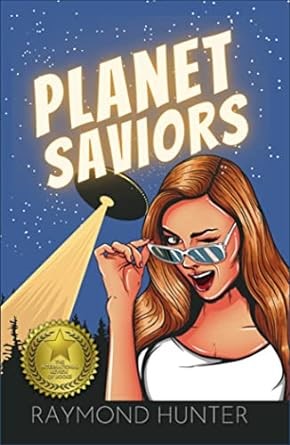Hey there, curious minds! Ever find yourself lost in the mesmerizing worlds of science fiction, wondering about the quirky facts that make the genre so out-of-this-world awesome? Well, you’re in for a treat! This blog is your backstage pass to the coolest and quirkiest fun facts about science fiction. We’re about to dive into the stories, authors, and mind-bending concepts that make sci-fi a cosmic rollercoaster of imagination.
13 Fun Facts About Science Fiction for Readers and Writers
1. Origin of the Term “Science Fiction”:
Let’s begin this list of fun facts about science fiction by exploring the “Origins of the Term”. Coined by Hugo Gernsback in the 1920s, “science fiction” was initially used to describe a new form of storytelling that merged scientific principles with imaginative narratives. Gernsback, often referred to as the “Father of Science Fiction,” laid the groundwork for a genre that would take humanity to the stars while exploring the depths of our own existence.
2. The Diversity of Sci-Fi Subgenres:
Science fiction isn’t a monolith but a galaxy of diverse subgenres. From cyberpunk’s gritty tech-driven worlds to space opera’s epic interstellar sagas, the genre accommodates a spectrum of storytelling styles. This diversity ensures that every reader, regardless of their taste, can find a niche within the expansive universe of science fiction.
“Planet Saviors” by Raymond Hunter is a prime example of genre-blending. The author masterfully combines science fiction with satirical humor, adding more depth to the story. The protagonist, Stella, despite living in a utopia, thinks that Earth has all the solutions to the problems on her planet. Hence, when readers explore Stella’s experience on Earth, it adds another dimension to the story and makes the narrative more appealing to a wider audience.

3. Mary Shelley’s Pioneering Role:
Before the term “science fiction” entered the lexicon, Mary Shelley laid the foundation with her groundbreaking novel, “Frankenstein.” Published in 1818, Shelley’s work is considered one of the earliest examples of science fiction, as it delves into the consequences of playing with the very fabric of life through scientific experimentation.
4. The Impact of H.G. Wells:
The exploration of fun facts about science fiction is incomplete without acknowledging the profound influence of H.G. Wells. The British author, with classics like “The War of the Worlds” and “The Time Machine,” shaped the genre’s landscape, setting the stage for alien invasions and time-traveling escapades that continue to captivate audiences today.
5. Star Trek’s Technological Predictions:
Beam us up, Scotty! “Star Trek,” a beloved science fiction franchise, entertained millions and made some uncanny technological predictions. From communicators that resemble modern flip phones to tablet-like devices eerily similar to today’s iPads, the show’s futuristic gadgets have, in many ways, become a reality.
6. Isaac Asimov’s Three Laws of Robotics:
How can this list of fun facts about science fiction be complete without mentioning the introduction of AI and robotics in this literature? In the realm of artificial intelligence and robotics, Isaac Asimov’s “Three Laws of Robotics” stands as a testament to his visionary thinking. Introduced in his stories, these laws govern the behavior of robots and have sparked ethical discussions about our relationship with machines, a topic increasingly relevant in our technologically advancing world.
7. The Dystopian Warnings of George Orwell and Aldous Huxley:
Not all fun facts about science fiction are rainbow and unicorns. Instead, we often encounter dystopian visions painted by George Orwell in “1984” and Aldous Huxley in “Brave New World.” Both authors warned of societal pitfalls, reflecting on the consequences of unchecked power and technological control.
8. The Multiverse Theory in Science Fiction:
Buckle your seatbelts for a cosmic leap into the multiverse! Science fiction often flirts with the concept of parallel universes, where infinite possibilities unfold. Whether it’s through interdimensional travel or alternate realities, the multiverse theory adds a layer of complexity and wonder to the genre.
9. The Influence of Science Fiction on Real Science:
Believe it or not, science fiction has influenced real scientific advancements. The iconic communicator from “Star Trek” inspired the creation of the first mobile phones, while the concept of a “tractor beam” has become a subject of serious scientific inquiry. The continuous interplay between speculative fiction and scientific innovation highlights the profound impact that creative imagination can have on shaping the future of technology and discovery.
10. Philip K. Dick’s Mind-Bending Realities:
Prepare to question the nature of reality with the works of Philip K. Dick. Famous for mind-bending narratives like “Blade Runner” (based on his novel “Do Androids Dream of Electric Sheep?”), Dick’s exploration of altered states of consciousness, parallel worlds, and the elusive nature of truth has left an indelible mark on the philosophical side of science fiction.
11. The Golden Age of Science Fiction Magazines:
Before the blockbuster novels and Hollywood adaptations, the Golden Age of Science Fiction saw short stories and novellas flourishing in pulp magazines. Writers like Arthur C. Clarke and Isaac Asimov often debuted their works in these publications, contributing to the genre’s rich tapestry through serialized storytelling.
12. The Impact of “The Twilight Zone”:
Rod Serling’s iconic television series, “The Twilight Zone,” deserves a special mention. A masterful blend of science fiction, fantasy, and horror, each episode left audiences contemplating the bizarre and unexpected. With its twist endings and moral quandaries, “The Twilight Zone” became a cultural touchstone, showcasing the profound storytelling possibilities within the science fiction realm.
13. Science Fiction’s Reflection of Societal Concerns:
How can we forget to mention the impact of sci-fi literature on societies when discussing fun facts about science fiction? Beyond the fantastical elements, science fiction often serves as a mirror reflecting contemporary societal concerns. Classic novels like “Fahrenheit 451” by Ray Bradbury and “The Handmaid’s Tale” by Margaret Atwood offer cautionary tales about censorship and the erosion of individual freedoms, resonating with readers across different eras.

Order “Planet Saviors” by Raymond Hunter Today!
And there you have it – a glimpse into some incredible fun facts about science fiction, a genre in which imagination takes flight and reality is but a distant star. As we continue to explore the uncharted territories of the genre, let’s marvel at the authors who dared to dream beyond the confines of our known universe. So, the next time you pick up a science fiction novel or tune in to a futuristic film, remember the fun facts that make this genre a timeless voyage into the unknown. Until next time, may your adventures be as boundless as the galaxies that grace the pages of these extraordinary tales!
Ready to explore the world of science fiction with a blend of humor? “Planet Saviors” by Raymond Hunter is now available for purchase. Order your copy today!




